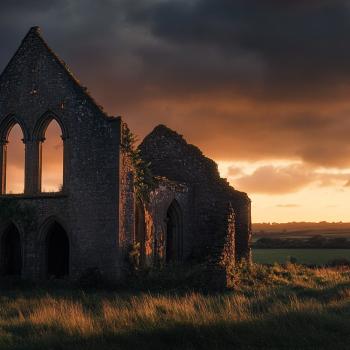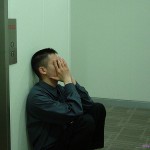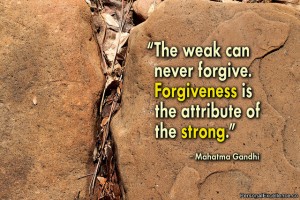
I had never heard such a thoughtful question posed to a presidential candidate.
The young woman at a South Carolina town hall event wanted to know about the power of forgiveness. How could it be utilized in public life?
The candidate onstage happened to be Hillary Clinton, and my first thought was that Hillary of all people understands forgiveness. She has stayed with a husband who cheated, frequently and flagrantly, and she evidently forgave him, even after a humiliating scandal and impeachment.
At first, I thought Hillary might talk about her personal experience. She began her answer saying, “I, as a person of faith, believe profoundly in the power of forgiveness.”
But she pivoted to South Africa’s Truth and Reconciliation Commission in the 1990s, which allowed people identified as perpetrators and victims of apartheid to see themselves in the others’ eyes. “An astonishing leap of faith, “ she called it.
Her thoughts about forgiveness trailed off after that.
“I think it’s one of our biggest challenges, and I hope we find ways to try to address it,” she said finally.
How could any president address it?
Is any leader strong enough to suggest that we forgive instead of retaliate?
TRY SOMETHING NEW
I’m glad I’m not the president. I’m glad it’s not my job to utilize spiritual principles in world events. Remembering them in my own life is challenging enough.
But I will always believe we missed an opportunity after 9-11 to stop the cycle of violence.
What if the United States had not struck militarily?
What if we had tried to find out what’s wrong, the way you might try to understand why a child is acting out?
What if we had a public leader who said, after a mass shooting or police shooting, that forgiveness would ease the turmoil we feel?
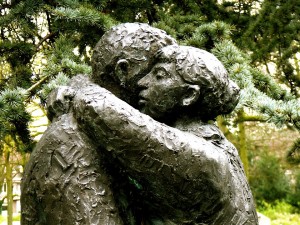 That might not be our initial reaction, but maybe it could be discussed when the outrage has cooled. Just a quiet suggestion that we might, just might, consider forgiving this time instead of hating.
That might not be our initial reaction, but maybe it could be discussed when the outrage has cooled. Just a quiet suggestion that we might, just might, consider forgiving this time instead of hating.
I can only imagine the pubic outcry – the scoffing, the accusations of weakness and failed leadership.
Or do you think this might be the moment to try something new? After all, thousands of years of attack and counterattack have not brought peace.
Those of us who describe ourselves as “spiritual” talk all the time about wanting to share a message of love with the world. Let peace begin with me, we sing.
Isn’t it hypocritical, then, to turn around and say, “Bombs are the only thing they understand?”
What more challenging spiritual practice could we employ than forgiveness?
We strive to forgive the hurts in our own lives.
Why not as a nation?
NOT OFF THE HOOK
To be very clear, forgiveness does not supplant justice. You can forgive someone and still hold him accountable.
My new book, Hell in the Hallway, Light at the Door, includes the story of a woman named Robin who forgave the man who raped her.
Make no mistake, he deserves to be in prison, and she’s glad he was caught. But Robin didn’t want to let one sick man or one awful event control the rest of her life.
She became willing to forgive.
And one day, when she took a load of teddy bears to a rape crisis center, she discovered the anger and energy, the knot in her stomach, were gone.
She was free.
WHO WILL LEAD?
Perhaps the young woman who asked about forgiveness in South Carolina was remembering the families of two Charleston shooting victims, who said in court they forgave the young white man who brought a gun to a Bible study and killed nine black people.
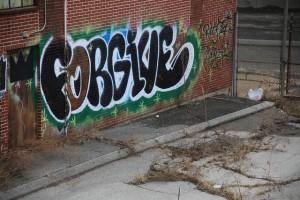
Not everyone in the nine families was ready to forgive, however. Too soon. Too painful.
Time magazine wrote a fascinating story about the repercussions of that early forgiveness and the much longer journey required by others, who felt somehow robbed of their right to be hurt and angry.
Any national effort to practice forgiveness not only would require courage but exquisite timing. Sometimes feelings are too raw, and to counsel forgiveness seems almost disrespectful.
So I don’t know the answers. I just haven’t been able to let go of this idea of forgiveness in public life since I heard the question at the town hall.
In our current political climate, I can’t imagine a leader brave enough or spiritually mature enough to try to lead us in national forgiveness.
But what a concept! What a vision!
I’m going to hold out hope that we will choose, sooner than later, to face life’s horrors with love instead of fear. That we might call forth a leader who at least is willing to try non-violent solutions, even in response to attack.
If we want to change the world, someone is going to have to make the first move.



